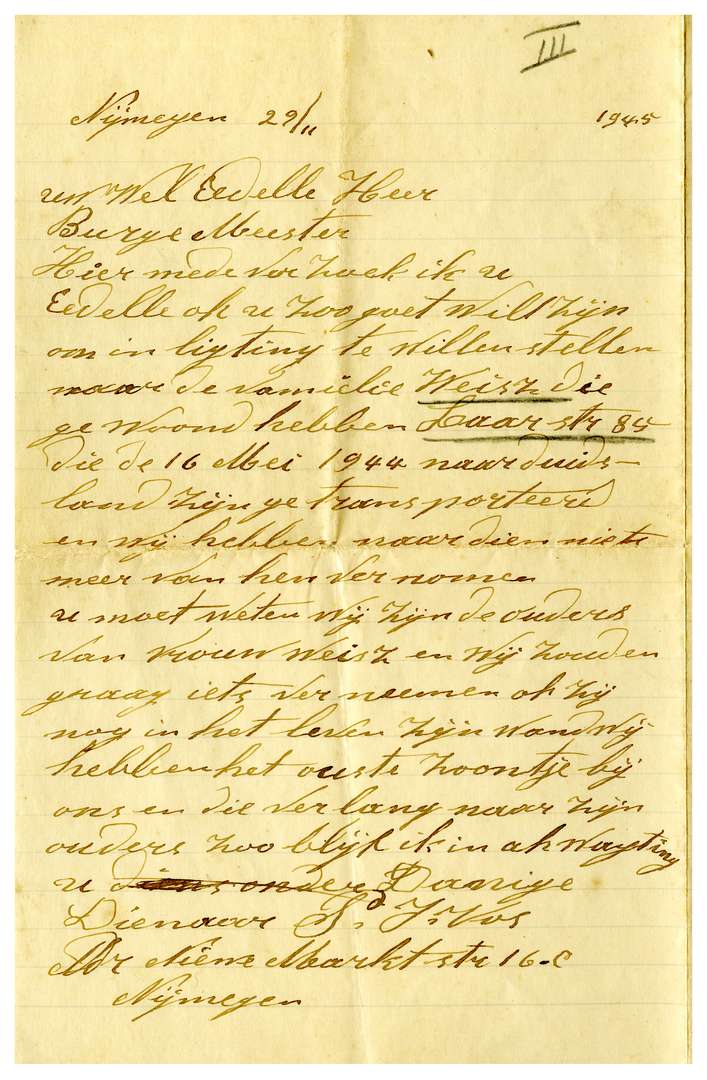No concern shown for survivors
In November 1945 Petrus Johannes Vos, born in Amsterdam in 1874, wrote to the lord mayor of the municipality of Zutphen to ask if the authorities there knew anything about the whereabouts of his daughter and her family. The letter was returned to him shortly thereafter. The lord mayor’s office gave the following answer typed on the letter itself: the persons residing at 85 Laarstraße were summoned to present themselves at the town hall, but the summons was returned as undeliverable. Mr Vos was told to wait for a checking of the residential register planned for ‘sometime in the future’.
For many years the family remained uncertain about what had happened to their relatives. Jacoba Weisz (b. 1916) was, together with her husband, Johannes (1914) and their three children, Augusta (1939), Johanna (1941) and Emile (June 1943), deported via the Westerbork camp to the Auschwitz-Birkenau concentration and extermination camp on 19 May 1944. Jacoba Weisz and the children died there; presumably they were murdered in the gas chambers during the night of 2–3 August 1944 when the ‘Gypsy camp’ in Birkenau was disbanded by killing all the inmates. Johannes Weisz did not survive either. At Birkenau he was selected for forced labour and on 3 August 1944transferred to the Buchenwald concentration camp, and from there to the Mittelbau-Dora concentration camp, where he died in the Ellrich-Juliushütte satellite camp on 13 November 1944.
All that remained Petrus Vos was one grandchild: the eldest son of Jacoba and Johannes Weisz, Johan Weisz, known as Zoni. Born in 1937, Zoni was not in Zutphen when the raid took place in May 1944 but had gone into hiding at the home of an aunt. When he, too, was due to be deported, a Dutch policeman helped him escape; he hid in the woods and on farms, making his way to his grandparents.
The manner in which the Zutphen authorities responded to Petrus Vos’ inquiry is typical of the attitude of Dutch society after 1945. The survivors of the genocide were left on their own to deal with the loss of their homes and material possessions, the psychological and physical consequences of their persecution, and the profound grief for their relatives. An official notification about the death of the father was received first in December 1948. Those for the rest of the family are still yet to be issued.







